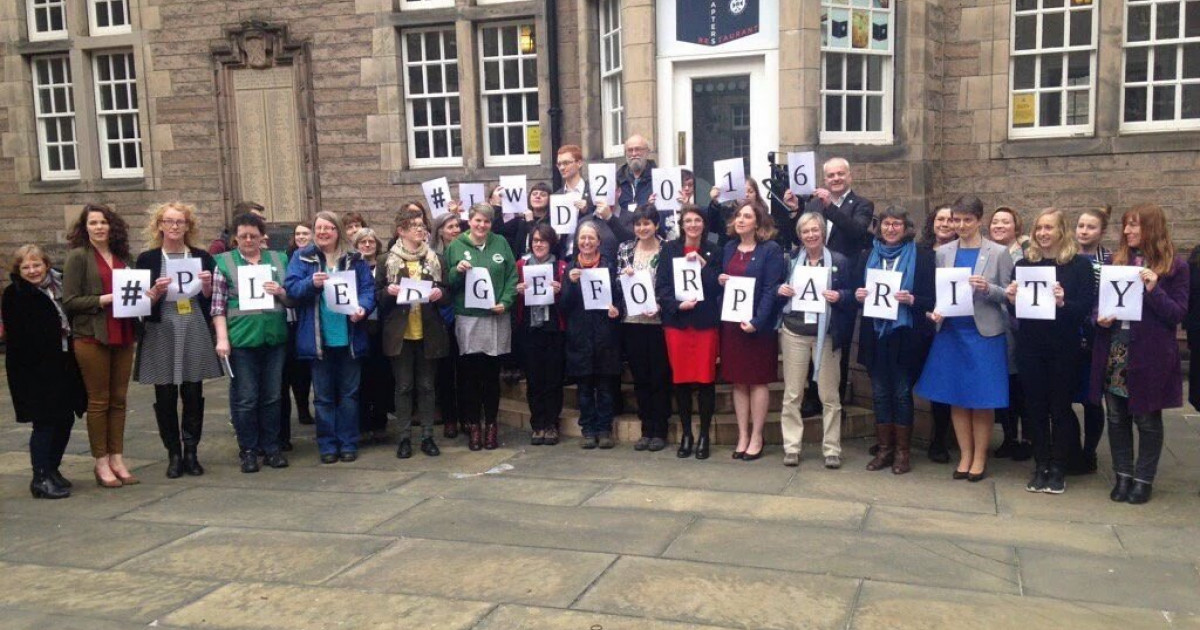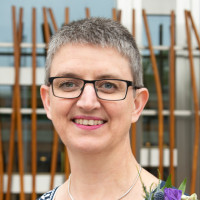#IWD2016: The Cuts We've Faced Since The Economic Crash Have Hit Women The Hardest

On International Women's Day 2016, Maggie Chapman, Co-Convenor of the Scottish Green Party and MSP Candidate for the North East, shares her view on how the cuts we have faced as part of austerity measures have hit women the hardest.
Greens are committed to equality, and a fundamental part of that equality is gender equality. That's why Greens have a gender balanced leadership structure with co-convenors. While we have worked hard on women's representation in politics, there is a massive challenge for women today.
We live in a society, in a world, where violence against women and girls is both a cause and a consequence of women’s inequality.
We live in a society, in a world, where violence against women and girls is both a cause and a consequence of women’s inequality. It is vital that any public policy initiatives recognise this, and work across departments, across sectors, and across society.
We know that, with all the cuts we’ve faced since the economic crash and the imposition of the cruel ideological obscenity that is austerity, 85% of the cuts have come from women’s incomes, or hit women hardest. We also face the changes to benefits at a UK level which means that child benefit will only be available for 2 children in a family, unless the 3rd child is a result of rape. As if that’s not bad enough, the woman also has to prove that she’s been raped: to the Department of Work and Pensions.
There are some key changes that I would like to see in Scotland:
- Better access to justice for victims of violence: such as decent, independent legal aid, removal of the ‘not proven’ verdict, the need for corroboration as defined in Scots law, and so on
-Very urgent action on homelessness: domestic abuse is a significant reason for homelessness and there needs to be provision for this in all housing policy - at local levels too.
We need better and secure core funding for shelters, advice organisations, education and rehabilitation.
We see just this morning the potential devastating consequences for women’s refuges if the UK’s plan to cap social housing rents goes ahead. We need better and secure core funding for shelters, advice organisations, education and rehabilitation. We also need fast implementation of strong laws around revenge porn and stalking. Discussions on these so far have been promising: they recognise that violence against women is not about strangers lurking in bushes and behind trees. I think we also need to be very clear that gender-based violence goes beyond physical and psychological violence, such domestic abuse, sexual assault, female genital mutilation, harassment, forced marriage and honour crimes.
It includes social and economic oppression, which is a type of violence. Limiting or restricting financial independence of women is violence. Political decisions can count as violence. Women’s under-representation, discrimination against women, and so on, all count as violence, and contribute to the culture that says it’s ok to systematically abuse women.
And we need to get better at understanding intersectionality. I am privileged to work with women who come from a variety of different Muslim backgrounds. From this experience, it is clear to me that, until the health, education, housing or advice services we provide recognise and acknowledge the need for faith and culturally sensitive provision, as well as provision that addresses disability, race and age, we will be failing all of our citizens.
